Search titles
Displaying results 1 to 10 of 179.
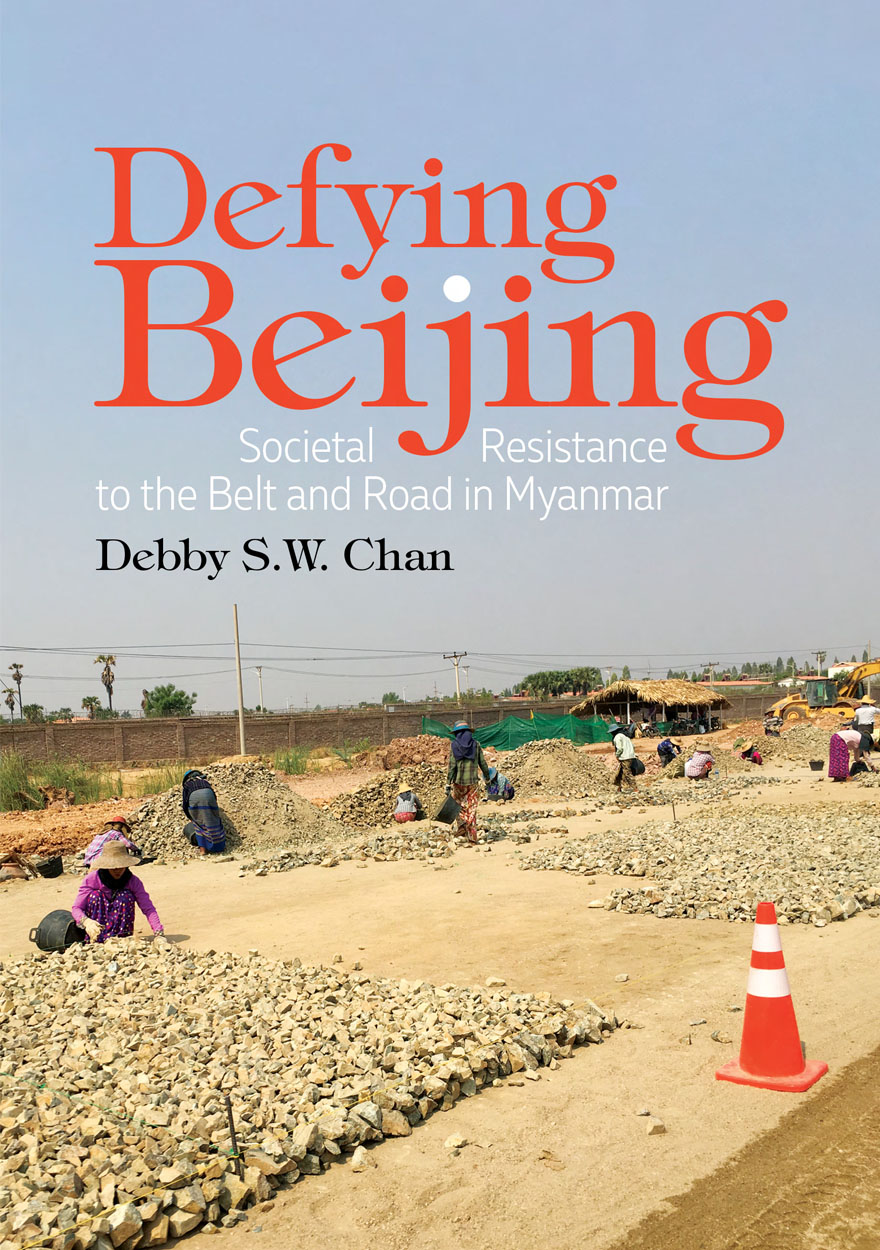
Defying Beijing »
Societal Resistance to the Belt and Road in Myanmar
Authored by: Debby Chan
Publication date: 2024
The Belt and Road Initiative (BRI) aims to construct a Sino-centric transcontinental infrastructure network in Asia, Europe, Africa, and beyond. Within this initiative, the China–Myanmar Economic Corridor (CMEC) is a vital strategic component. The shortcut to the Indian Ocean seeks to improve China’s energy security and facilitate trade. Defying Beijing: Societal Resistance to the Belt and Road in Myanmar shows how Myanmar was able to capitalise on Chinese BRI ambitions to achieve its own desired outcomes during the country’s political liberalisation in the 2010s. Belying the asymmetrical relationship between these two nations, the Myitsone hydropower dam was suspended, the Letpadaung copper mine’s contract was renegotiated, and the Kyaukphyu deep seaport project was downsized. China offered concessions to Myanmar instead of pressuring it to honour those signed agreements. Contrasting a common proposition that US-Myanmar rapprochement disrupted the BRI projects in Myanmar, Defying Beijing argues that the rise of new foreign policy actors – citizens – made project continuation costlier for Naypyidaw in the course of political liberalisation in the 2010s. Naypyidaw was pressured to renegotiate terms with Beijing in the wake of social outcry in the country. Defying Beijing advances our understanding of Chinese–Myanmar BRI relations and demonstrates how citizens can change the course of events of BRI cooperation despite oppressive political environments and an imbalanced bargaining structure. In post-coup Myanmar, Naypyidaw’s policy options were not conditioned by public opinion or protests; nonetheless, armed resistance has posed new domestic constraints in the CMEC’s implementation. Clearly, bilateral economic agreements without citizens’ endorsement are fraught with legitimacy problems and instabilities.
Coming soon
Notify me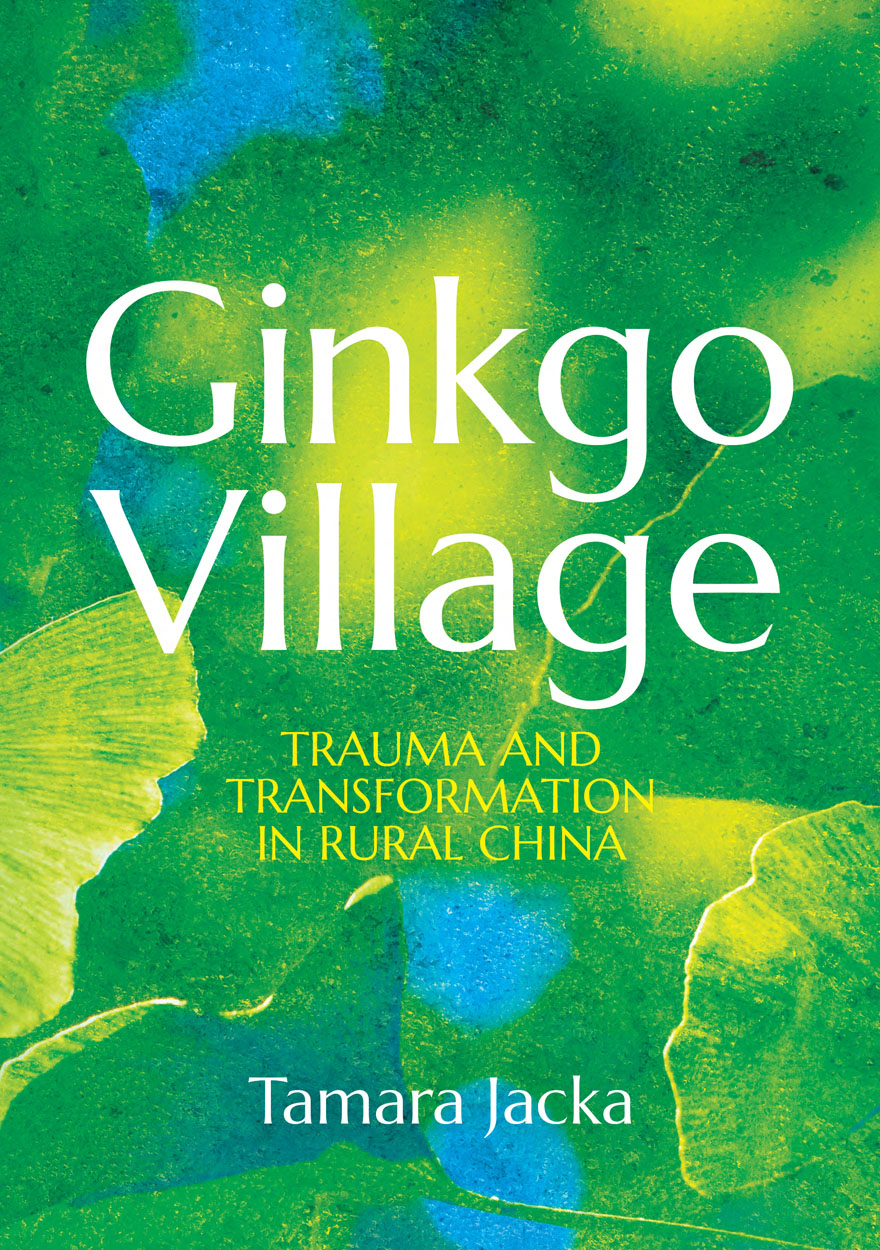
Ginkgo Village »
Trauma and Transformation in Rural China
Authored by: Tamara Jacka
Publication date: 2024
Ginkgo Village provides an original and powerfully intimate bottom-up perspective on China’s recent tumultuous history. Drawing on ethnographic and life-history research, the book takes readers deep into a village in a mountainous region of central-eastern China known as Eyuwan. In the twentieth and early twenty-first centuries, villagers in this region experienced terrible trauma and far-reaching socio‑economic and political change. In the civil war (1927–1949), they were slaughtered in fighting between Nationalist and Communist forces. During the Great Leap Forward (1958–1961), they suffered appalling famine. Since the 1990s, mass labour outmigration has lifted local villagers out of poverty and fuelled major transformations in their circumstances and practices, social and family relationships, and values and aspirations.
At the heart of this book are eight tales that recreate Ginkgo Village life and the interactions between villagers and the researchers who visit them. These tales use storytelling to engender an empathetic understanding of Ginkgo Villagers’ often traumatic life-experiences; to present concrete details about transformations in everyday village life in an engaging manner; and to explore the challenges and rewards of fieldwork research that attempts empathetic understanding across cultures.
Coming soon
Notify me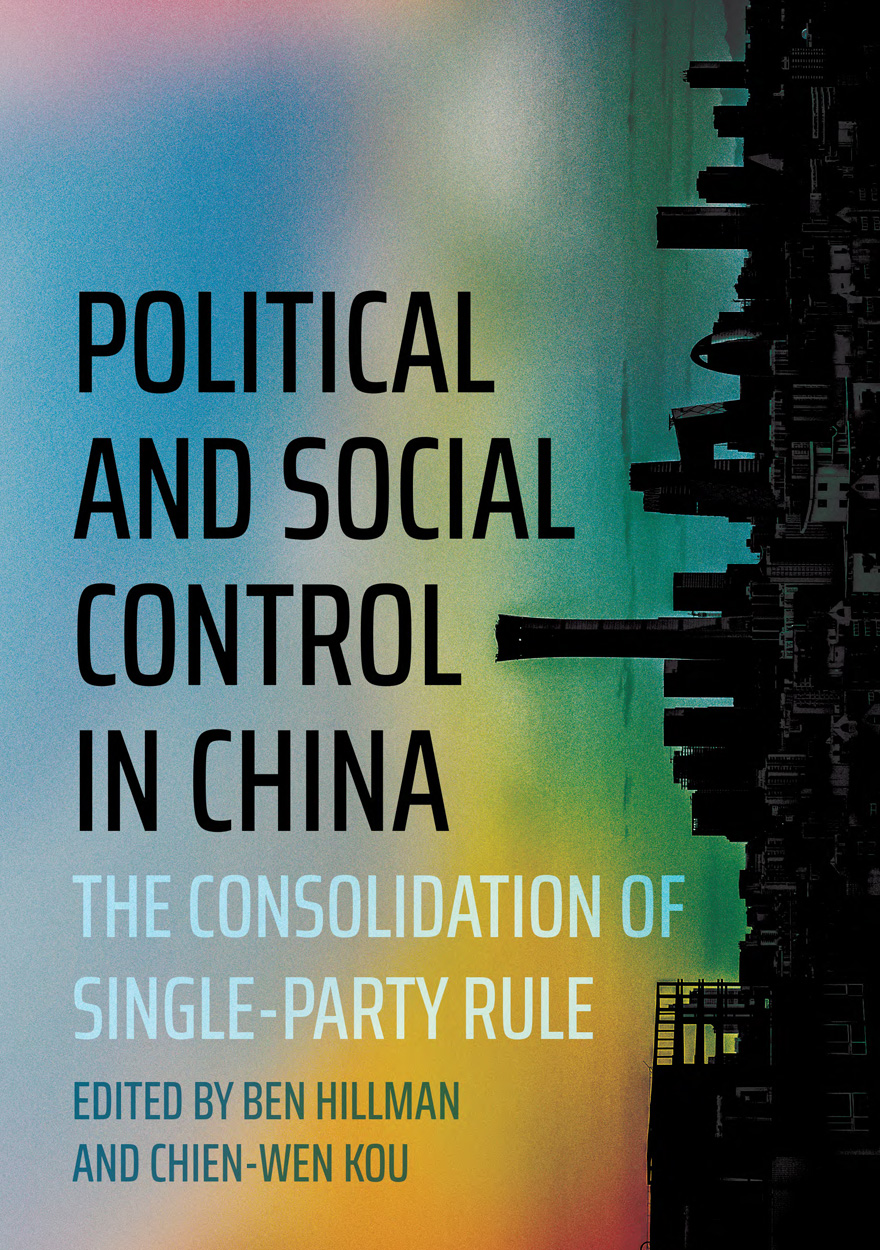
Political and Social Control in China »
The Consolidation of Single-Party Rule
Edited by: Ben Hillman, Chien-wen Kou
Publication date: March 2024
During the past decade Xi Jinping has reasserted the Chinese Communist Party’s dominance of state and society, tightening political and social controls to consolidate the Party’s monopoly on political power in China. This volume brings leading China experts together to examine the changing mechanics of authoritarian rule in China, and the Party’s systematic efforts to neutralise potential threats. The book examines critical but little understood changes to the architecture of state, which enables more effective top-down rule and the efficient operation of an increasingly professional bureaucracy. It also explores the policies and mechanisms the Party has used to squash dissent and prevent criticisms. This volume will be of interest to anyone who wants to understand how the CCP has consolidated its rule at home and how it relates to the Party’s global ambitions for China’s great national rejuvenation.
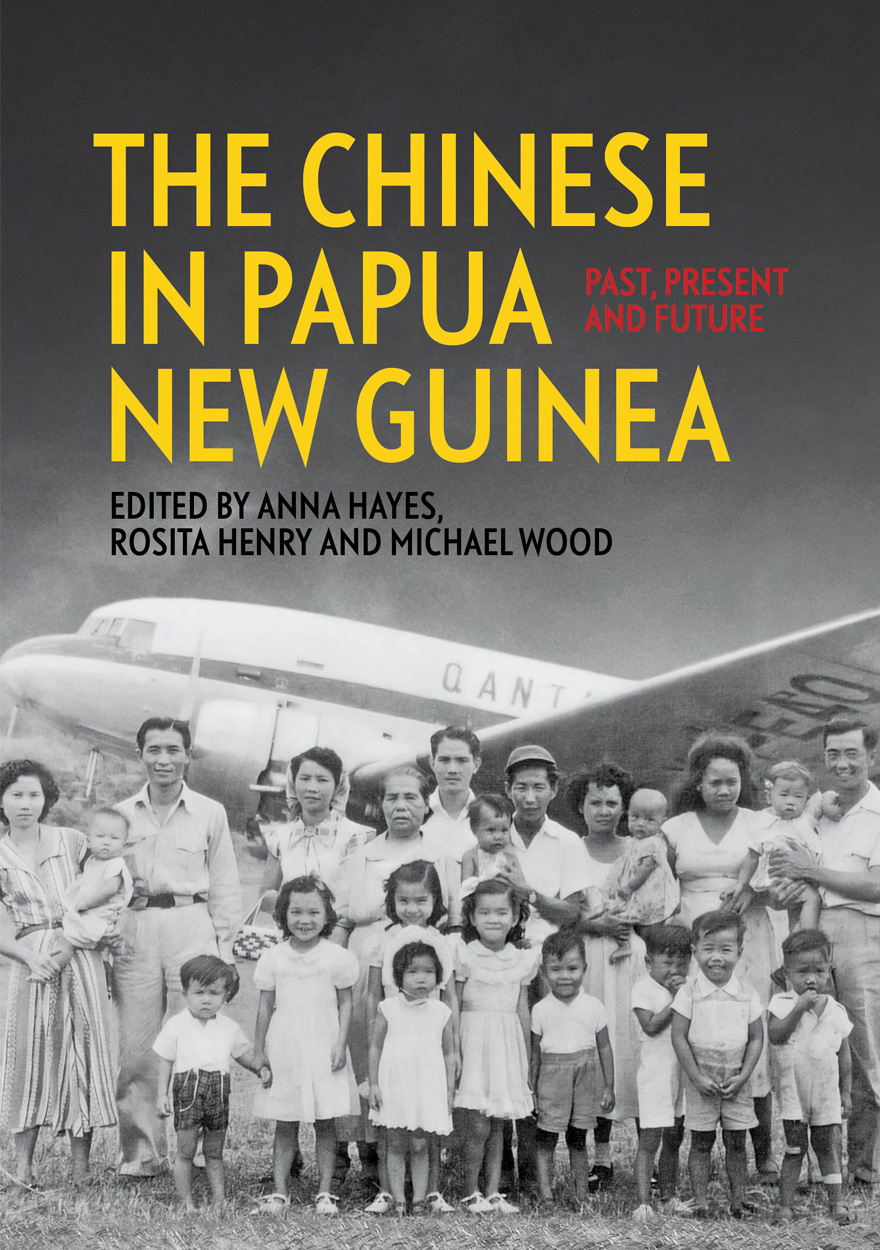
The Chinese in Papua New Guinea »
Past, Present and Future
Publication date: 2024
Papua New Guinean, Chinese and Australian people have long been entangled in the creation of complex histories and political debates concerning the similarities and differences of each group. These debates are fundamental to understanding how a sense of national unity in Papua New Guinea is formed, as well as within analyses of the wider world of strategic power dynamics and influence. The Chinese in Papua New Guinea offers a comprehensive and nuanced examination of the Chinese in Papua New Guinea. Chinese, Papua New Guinean and Australian interactions are analysed in the context of ongoing shifts in colonial power, increased regional engagement with China, and current political instabilities across the Indo-Pacific region. The many ways the Chinese have been defined as actors in PNG’s history and politics are analysed against the backdrop of a rapidly changing global order. The complexity of Chinese experiences within Papua New Guinea is given expression, here, with chapters that stress political and historical heterogeneity, the importance of language for understanding Chinese social relations, and that articulate rich personal experiences of race relations.
Coming soon
Notify me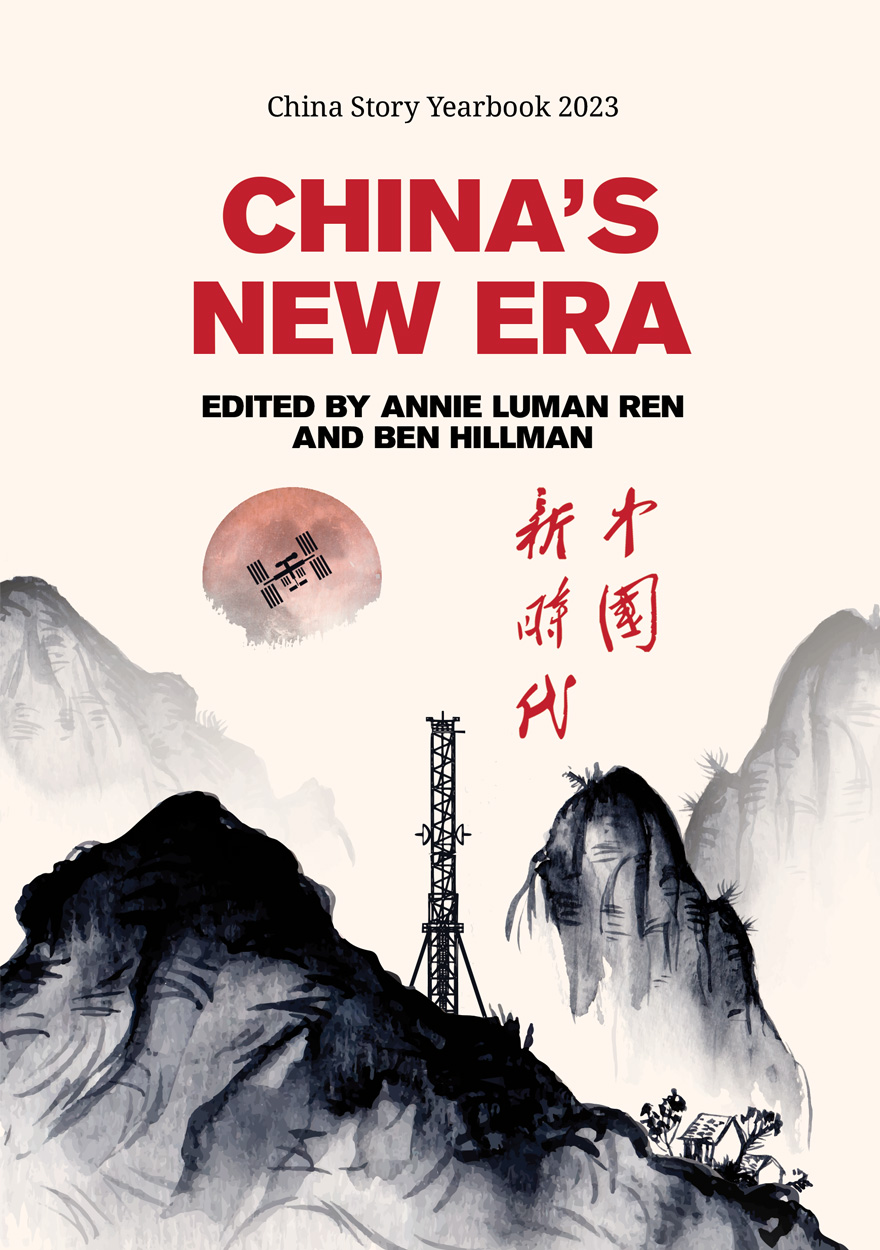
China’s New Era »
Edited by: Annie Luman Ren, Ben Hillman
Publication date: 2024
According to Communist Party discourse, China’s ‘New Era’ began when Xi Jinping was anointed Party boss in 2012. The shape of this New Era became eminently clear in 2023 when Xi commenced his third five-year term as General Secretary of the Party, a fortification of one-man authoritarian rule unprecedented in post-Mao China. Under Xi, the Party has expanded its influence over government, the economy and society. The Party-State is now more Party than State. The year 2023 saw other ‘new eras’ for China as well. Despite initial optimism sparked by the end of COVID-19 restrictions in late 2022, the Chinese economy in 2023 was buffeted by continuing property sector woes, record unemployment, and an unfolding local government debt crisis. Globally, China adopted a series of new and ambitious diplomatic initiatives to woo the Global South and amplify its voice on the world stage. The China Story Yearbook 2023: China’s New Era provides informed perspectives on these and other important stories that will resonate for years to come.
Coming soon
Notify me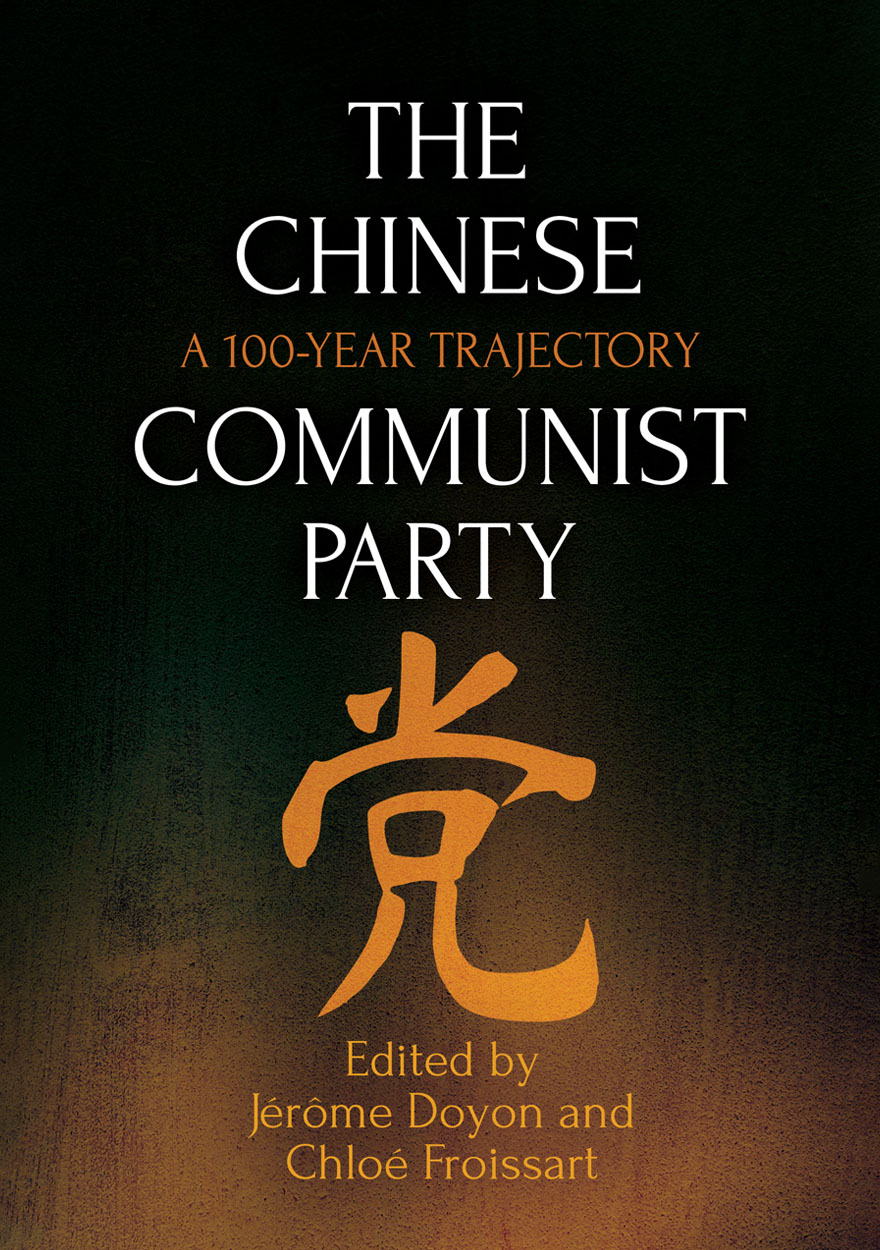
The Chinese Communist Party »
A 100-Year Trajectory
Edited by: Jérôme Doyon, Chloé Froissart
Publication date: January 2024
This volume brings together an international team of prominent scholars from a range of disciplines, with the aim of investigating the many facets of the Chinese Communist Party’s 100-year trajectory. It combines a level of historical depth mostly found in single-authored monographs with the thematic and disciplinary breadth of an edited volume. This work stands out for its long-term and multiscale approach, offering complex and nuanced insights, eschewing any Party grand narrative, and unravelling underlying trends and logics, composed of adaption but also contradictions, resistance and sometimes setbacks, that may be overlooked when focusing on the short term.
Rather than putting forward an overall argument about the nature of the Party, the many perspectives presented in this volume highlight the complex internal dynamics of the Party, the diversity of its roles in relation to the state, as well as in its interaction with society beyond the state. Our historical approach stresses impermanence beyond the apparent permanence of the Party’s organisation and ideology while also bringing to light the recycling of past practices and strategies. Looking at the Party’s evolution over time shows how its founding structures and objectives have had a long-lasting impact as well as how they have been tweaked and rearranged to adapt to the new economic and social environment the Party contributed to creating.
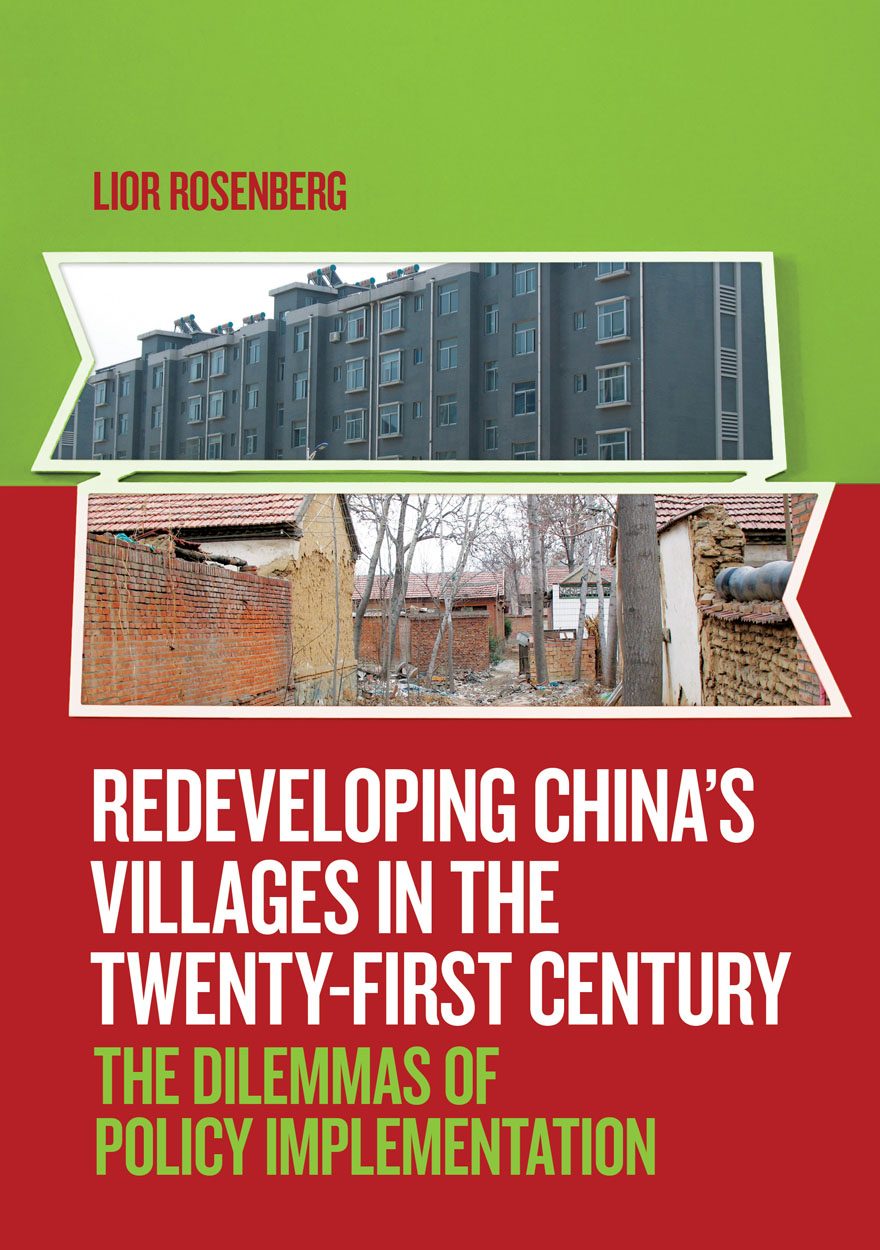
Redeveloping China’s Villages in the Twenty-First Century »
The Dilemmas of Policy Implementation
Authored by: Lior Rosenberg
Publication date: January 2024
Implementing national policies is a crucial function of the local Chinese bureaucracy and an indispensable part of Beijing’s overall state capacity. Yet the specifics of how and why local officials interpret and implement such policies have so far escaped detailed attention. In Redeveloping China’s Villages in the Twenty-First Century, Lior Rosenberg fills this gap by examining the national Village Redevelopment Program, one of China’s most significant policies of recent decades to promote rural change.
Based on Rosenberg’s on-site research, Redeveloping China’s Villages in the Twenty-First Century investigates the Village Redevelopment Program’s implementation in both the industrialised county of Chenggu, in Shandong province, and the predominantly agricultural county of Beian, in Anhui province. At the book’s heart is a puzzle: the program was supposed to prioritise poorer villages, but in both Chenggu and Beian—despite being carried out in surprisingly divergent ways—it has subsidised improved infrastructure and services in already industrialised and prosperous villages, while leaving behind poorer ones. In explaining this outcome, Rosenberg elaborates on the larger economic, political and social environment in which Chinese local officials operate, as well as the pressures they face from above. He analyses the dual role played by higher-level authorities, as both policy enablers and thwarters in a system that sanctifies commandism but where the distinction between principals and agents is blurred.

China between Peace and War »
Mao, Chiang and the Americans, 1945–1947
Authored by: Victor Cheng
Publication date: November 2023
In China between Peace and War, Victor S. C. Cheng explores the gripping history of peace talks and international negotiations from 1945 to 1947 that helped determine the shape of the Chinese Civil War. The book focuses on the efforts of the two belligerent parties—the Chinese Nationalists, or Guomindang, and the Communists—to achieve an enduring peace. It presents previously unexplored major elements of the peace talks: ambiguous treaties, package deals and short-term solutions. It identifies the burning challenges that confronted attempts at peacemaking, including the two warring parties’ high-risk decision-making styles and the temptation to veto agreements and resume fighting. Cheng argues against popular notions that differences between the two belligerents in the Chinese Civil War were irreconcilable, that the failure of the peace talks was predetermined and that the US government mediators needed to remain neutral.
Because the actions around the negotiating table occurred in a developing theatre of war, Cheng also explores the military decision-making of the opposing sides as well as the conflicts that ultimately plunged China into the world’s largest military engagement of the seven-plus decades since World War II. China between Peace and War highlights the contradictory role of political leaders who micromanaged the military, including their struggle to connect political objectives and military power, their rhetorical use of the ‘decisive war’ concept, and their pursuit of radical military-political goals at the expense of a negotiated peace.
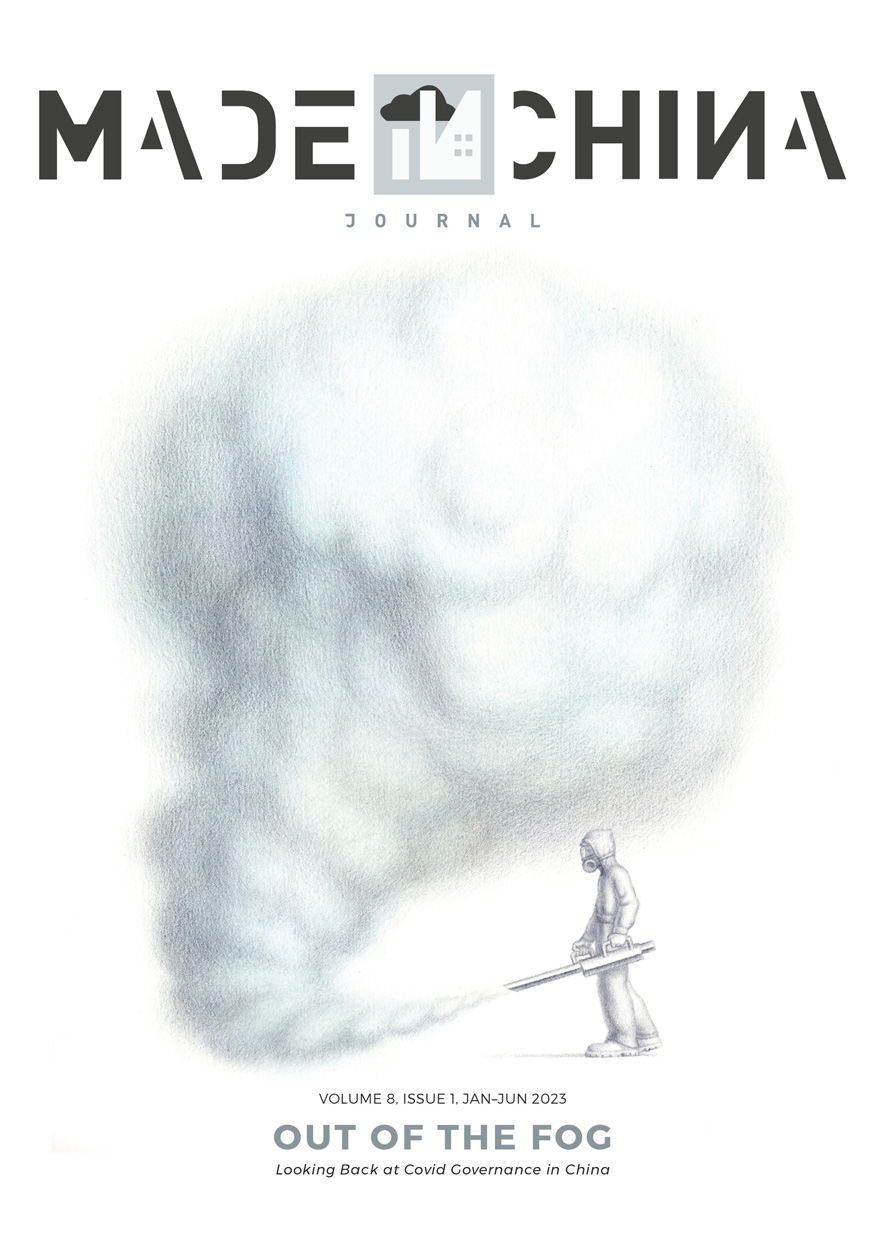
Made in China Journal: Volume 8, Issue 1, 2023 »
Edited by: Ivan Franceschini, Nicholas Loubere
Publication date: November 2023
The year 2023 began with a series of jolts in China, as the government abruptly rolled back its notoriously strict pandemic measures following countrywide protests in late 2022. While external popular perceptions saw China as being uniformly locked down for the first years of the pandemic, the reality was that the country’s pandemic governance was unevenly applied and varied substantially from place to place. The result was mixed—and often even contradictory—attempts to control the spread of SARS-CoV-2, with vastly differentiated experiences on the ground. While heterogeneous and fragmented governance in China is nothing new—and indeed is the basis of how most scholars understand policy implementation in the country—the pandemic nevertheless produced patterns of governance that were at times surprising, while also reinforcing previous trends. This issue of the Made in China Journal examines patterns of pandemic governance and the subjectivities associated with living through lockdown and the ever-present possibility of quarantine.
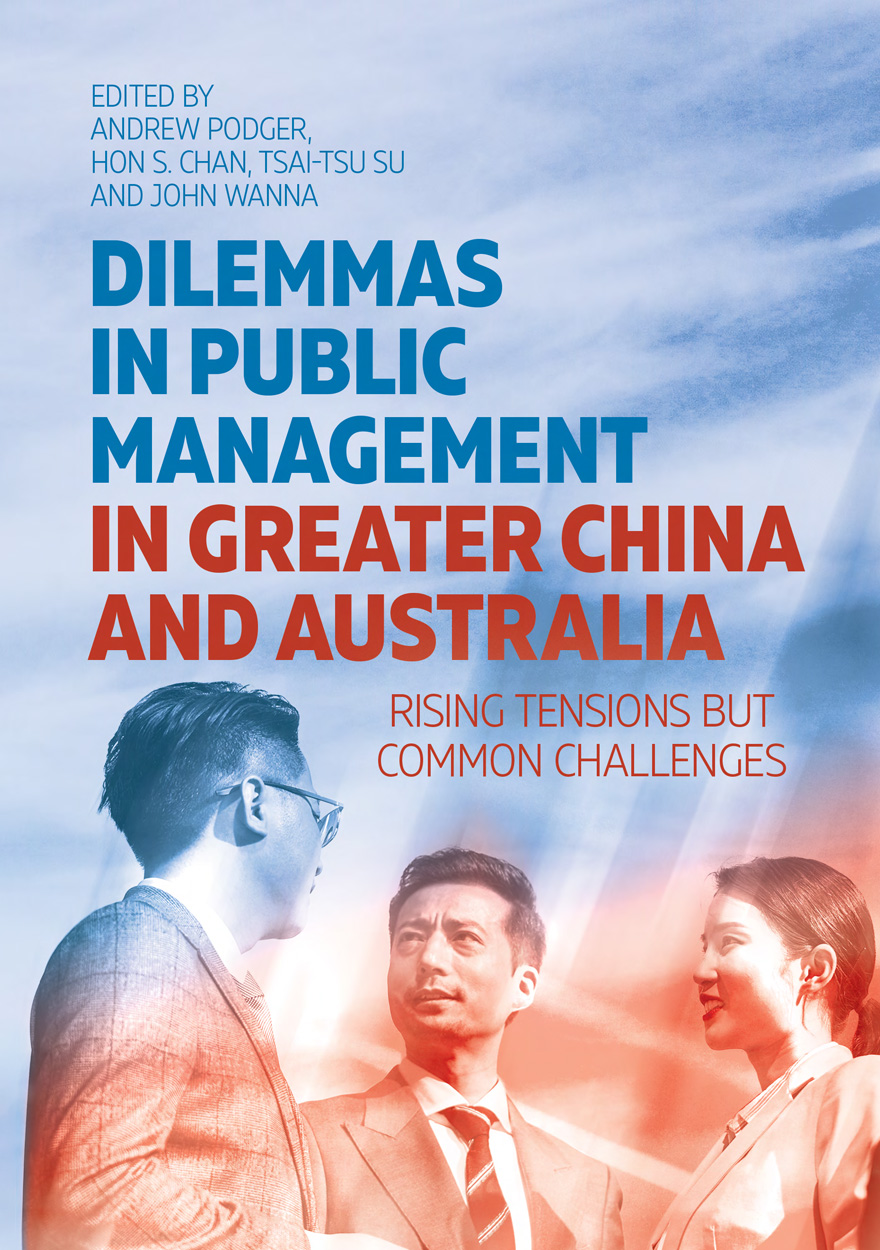
Dilemmas in Public Management in Greater China and Australia »
Rising Tensions but Common Challenges
Publication date: July 2023
This book draws on more than a decade of workshops organised by the Greater China Australia Dialogue on Public Administration, involving scholars and practitioners from Mainland China, Hong Kong, Taiwan and Australia. Although these workshops recognised the major differences in the institutional frameworks of these jurisdictions, until recently they focused largely on the shared challenges and the diffusion of ideas and approaches.
As rising international tensions inevitably draw attention to areas where interests and philosophies diverge, it is the differences that must now be highlighted. Yet, despite the tensions, this book reveals that these jurisdictions continue to address shared challenges in public administration.
The book’s contributors focus in detail on these four areas:
intergovernmental relations, including the shifting balance between centralisation and decentralisation
budgeting and financial management, including during and after the COVID-19 pandemic
the civil service, its capability, and its relationship with government and the public
service delivery, particularly in health and aged care.
This book is aimed at a wide readership, not only at those within the jurisdictions it explores. It emphasises the importance of continued engagement in understanding different approaches to public administration—confirming fundamental philosophical differences where necessary but also looking for common ground and opportunities for shared learning.



